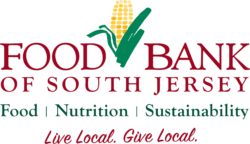National Nutrition Month – Live Healthy, Even on a Budget
Did you know that many people in the United States don’t eat enough healthy foods like fruits, vegetables, and whole grains? These foods are very important for staying healthy, and a lack of these foods can be bad for your health. But there’s good news! Eating healthy foods and regularly exercising can help to avoid these problems and maintain a healthy lifestyle.

Additionally, cooking big batches of food can also help you save time and money. Making large portions at once to eat throughout the week is one way to ensure your eating habits are healthy and efficient. This practice is called meal planning, which can make your life easier and healthier! When you plan your meals ahead of time, you don’t have to worry about what to make for dinner every night, and you’ll know that you’re eating healthy food that’s good for your body.
Sometimes, buying groceries can be expensive and take a lot of time. But there are ways to make it easier. For example, you can buy food in bulk to save money and reduce the number of trips you have to make to the store. And if you have a limited budget, apps like Shop Simple can help you find the best deals on healthy food.
In the spirit of National Nutrition Month, there are a few important health tips from the Academy of Nutrition and Dietetics to consider:
- Stay Active: Regularly staying active is especially important for overall health. Simply taking a walk after dinner can make a huge difference.
- Reduce Added Sugars: Foods and drinks with large amounts of added sugars often do not have nutritional value and are overall unhealthy. Consuming fewer added sugars can benefit your health through improved eating habits.
- Slow Down at Mealtime: Instead of eating on the run, try sitting down and focusing on the food you’re about to eat. Dedicating time to enjoy the taste and textures of foods can have a positive effect on your food intake.
- Drink More Water: Drinking water instead of drinks high in sugar can improve hydration and reduce sugar intake. It’s especially important to get enough water when staying active.
- Explore More Foods and Flavors: Trying new foods can introduce healthy options you may not have considered before. Not only does this add more choices to meal planning, but trying new recipes can be a fun activity for you or your family that creates a healthy outcome for everyone.
These are just a few tips to help guide you during National Nutrition Month to stay healthy year-round. And don’t forget, you can enjoy many types of foods if you stay active and pay attention to the ingredients you put in your body. Staying healthy means changing bad habits and consistently putting in the effort for your well-being. This can help make sure that you not only are healthy, but you feel healthy too.
National Nutrition Month is for everyone, and being on a budget does not exclude you from creating delicious, healthy recipes for yourself or your family. For more budget-friendly recipes that include readily-available food-bank food items, visit foodbanksj.org/recipes.
